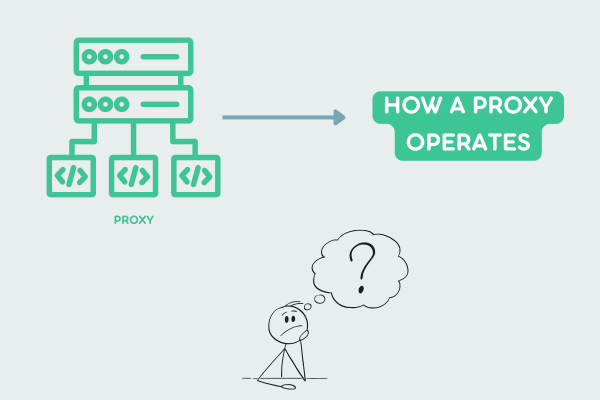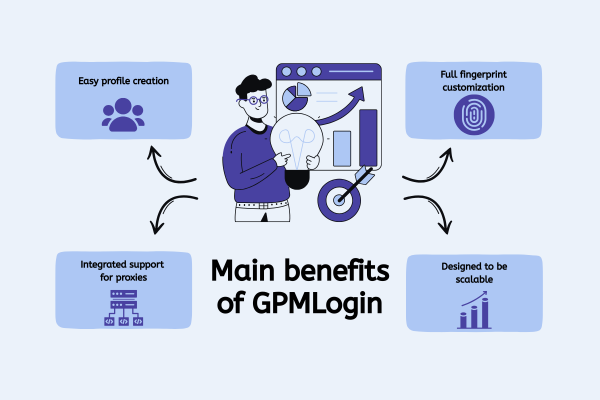Anti-Detect Browser vs. Proxy: Better for Privacy & Account Management?
Anti-detect browser vs. Proxy: Which is better for privacy and account management?
When it comes to anonymity and online privacy, especially for managing multiple ad accounts, two solutions stand out: proxy and anti-detect browsers. But which one offers you better protection? This article explores the key differences, advantages, and drawbacks between proxies and anti-detect browsers in real-world applications.
Why Anonymity matters for online marketers
Affiliate marketers, POD sellers, and dropshippers often:
Manage several Facebook, TikTok, or Google ad accounts
Need to avoid detection and bans from platforms
Require the separation of identities across multiple profiles
Using the same browser and IP leads to bans or restrictions. That’s why proxy vs. browser is a key debate.
How does a proxy operate, and what is it?

A proxy allows you to access websites using an IP address that’s different from your own. There are two main types:
Data center proxy: Fast and cheap, but easily flagged
Residential proxy: More expensive, harder to detect
However, proxy fingerprinting is a growing challenge. It's insufficient to only change your IP.
Limitations of proxies:
- Unable to stop browser fingerprinting
Cookies and local storage are still linked between sessions
IP can be shared or blocked
What really is an anti-detect browser, then?
An anti-detect browser creates separate, isolated browser profiles. Each profile acts like a unique device.
Popular tools like GPMLogin let users
Assign different fingerprints for each profile
Combine proxy with profile-level isolation
Store cookies and browser data securely
Unlike basic IP spoofing, anti-detect browsers mimic full device identities.
Proxy vs Browser: Detailed Comparison
Feature | Proxy | Anti Detect Browser |
Hides IP | Yes | Yes |
Prevents fingerprinting | No | Yes |
Cookie isolation | No | Yes |
Number of accounts supported | Limited | Unlimited |
Manual configuration | Complex | Simple |
Ideal for account farming | No | Yes |
The difference between proxy and browser fingerprint protection is clear: only anti-detect browsers offer true device-level anonymity.
When is a proxy enough?
Use proxies only when:
Accessing content geo-restricted by country
Performing low-risk scraping
You don’t need to create or manage multiple accounts
If you're not worried about proxy fingerprinting, proxies can be useful. But for ad account safety, they’re not enough.
When should you use an anti-detect browser?
You need an anti-detect browser when:
Running multiple ad accounts on Facebook, Google, and TikTok
Doing affiliate marketing that requires multiple profiles
Needing to hide the IP address and browser fingerprint together
GPMLogin lets you combine a residential proxy or a data center proxy with robust fingerprint control.
Use case: managing 100+ ad accounts with GPMLogin
With GPMLogin, you can:
Assign a proxy to each browser profile
Create isolated environments with unique browser fingerprints
Sync time zone, language, and hardware settings to your proxy IP
This setup is ideal for anyone asking: “Is proxy enough for account farming?” The answer is no—pair it with anti-detect software.
Real-world scenarios
Scenario 1: Only using proxy
IP changes, but browser fingerprint stays the same
Facebook links your behavior and flags the account
Scenario 2: Using anti detect + proxy (e.g., GPMLogin)
Each ad account has a unique fingerprint + IP
No overlapping data, no risk of bans
Common Questions
Should I use proxies or an anti-detect browser?
Use both, but rely on the anti-detect browser for fingerprint isolation. Proxy handles IP, browser handles identity.
Can proxies replace an anti-detect browser?
No. A proxy alone cannot stop browser fingerprinting. Combine with tools like GPMLogin for full protection.
What are the main benefits of GPMLogin?

Easy profile creation
Full fingerprint customization
Integrated support for proxies
Designed to be scalable
Conclusion
The debate between proxy vs browser is crucial for marketers. If you care about privacy, account longevity, and avoiding bans, the answer is clear.
A proxy gives you a new IP, but an anti-detect browser like GPMLogin gives you a new online identity.
Don’t rely solely on the fake IP. Modern platforms detect proxy fingerprinting. Instead, choose the better path: anti-detect with proxy combined.